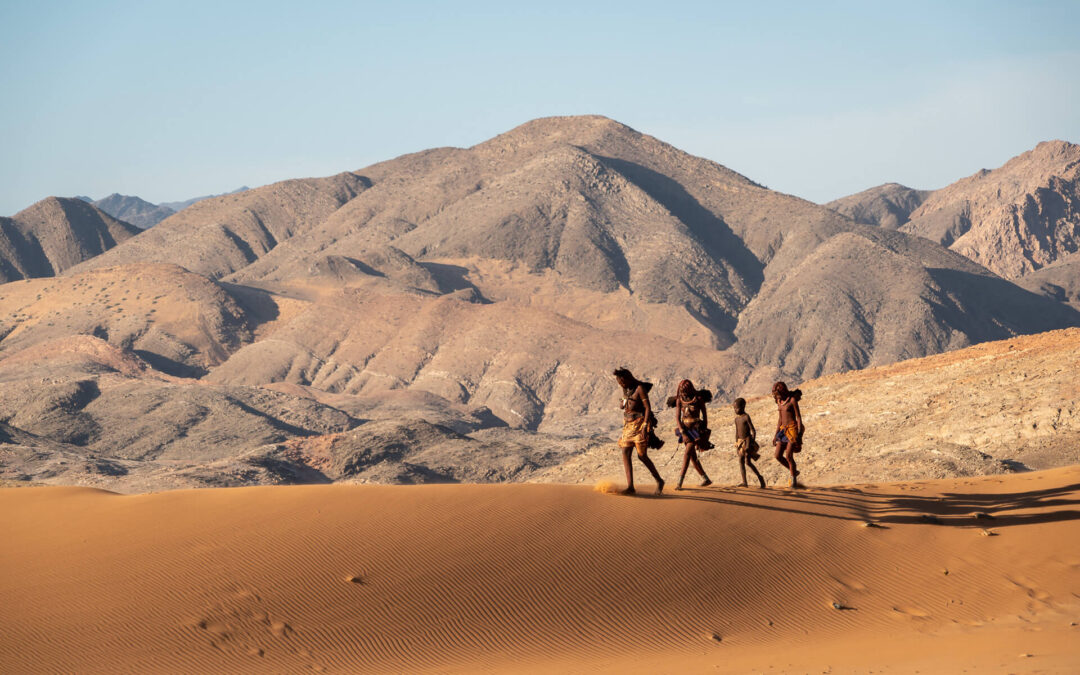Wilderness Safaris, together with non-profit partner Wilderness Wildlife Trust donates USD 5000 towards a sustainable vegetable garden to support the Himba community surrounding Serra Cafema Camp in North West Namibia.
A halt in international travel has added to the already-threatened economy in remote parts of Namibia, where communities who ordinarily rely on tourism for employment face uncertainty and lengthy income loss. On top of the pandemic, a significant drought is a widespread need in some of the most remote regions of southern Africa.
Wilderness Safaris’ Serra Cafema camp lies in the vast Marienfluss Conservancy, home to the semi-nomadic Himba people, who live in the valleys and rifts of this remote area of Namibia, where they own a majority of the land. Here the community relies solely on tourism and livestock for income, and with the loss of cattle due to the drought, the Himba people were vulnerable to food and water shortages. The solution, however, required a community effort to provide the much-needed supplementary nutrition to the Himba families.
The Wilderness Wildlife Trust is a non-profit entity associated with the Wilderness Group supporting various African projects in three areas, including Community Empowerment and Education. This year, the Trust donated USD 5,000 towards a sustainable vegetable garden at Serra Cafema Camp to provide long-term support to the Himba community.
To begin, the community participated in a short course focusing on dietary information, with guidance on sustainable farming practices for the harsh desert conditions. Seeds and a solar-powered borehole were also donated to the project, ensuring the success of the first harvest in the usually arid conditions, growing cabbages, tomatoes, onions, pumpkins, corn, and beetroot.
In addition to the critical support provided by Wilderness Safaris, with an urgent COVID-19 Relief Drive, over 300 food parcels were distributed in the region, assisting over 2,400 people in need. Each food hamper sustains a family of four for a month and contains essential groceries, including maize meal, salt, sugar, rice, cooking oil, soup, and soap. Wilderness Safaris also supplies the nearby villages with fresh water three times a week, and a clinic will soon be completed in the area.


